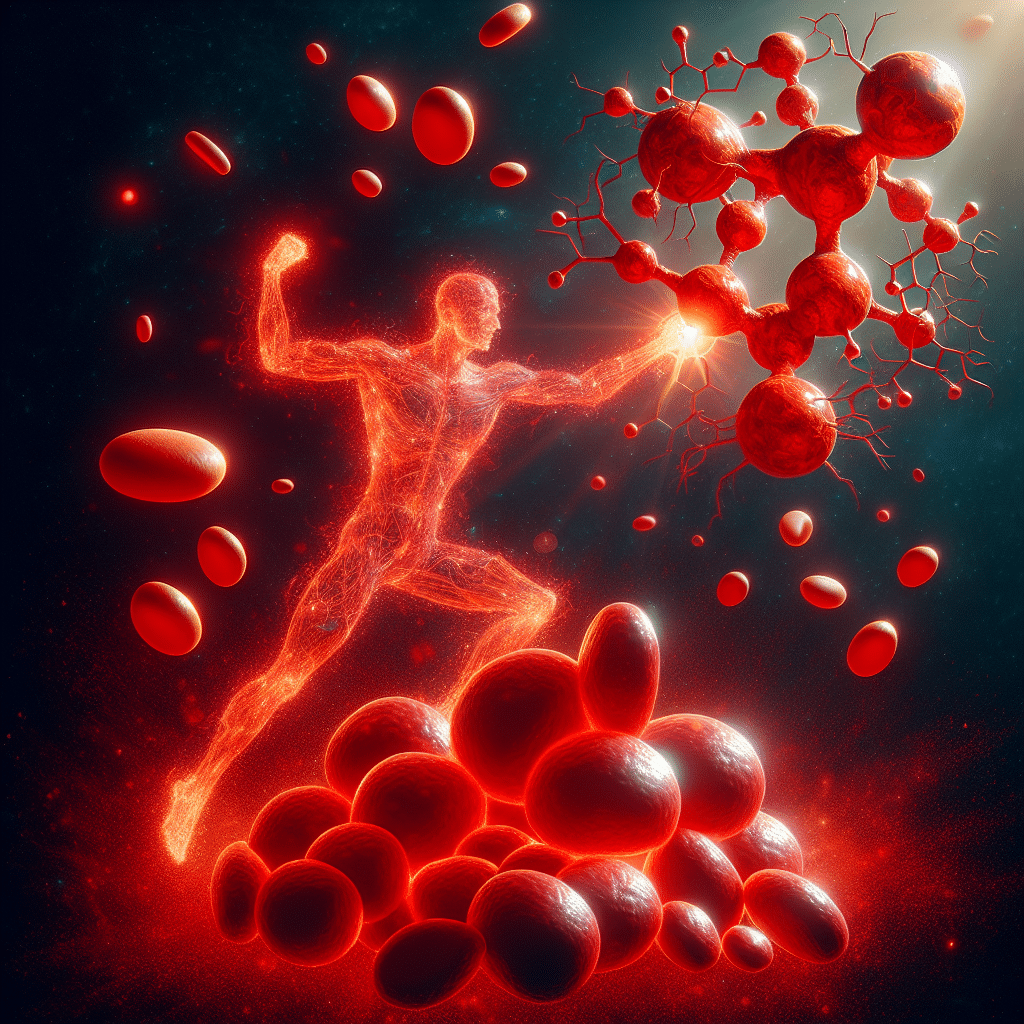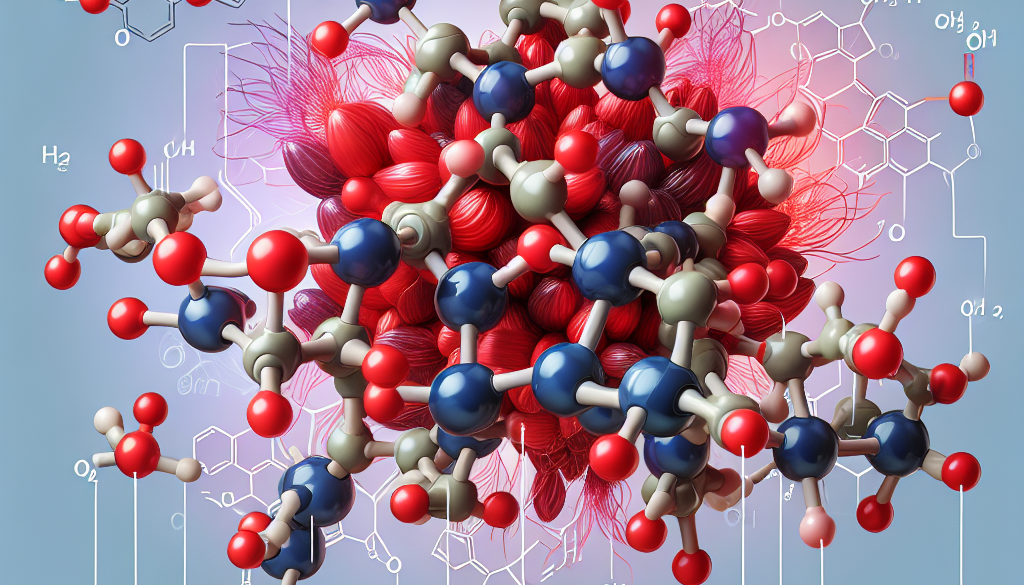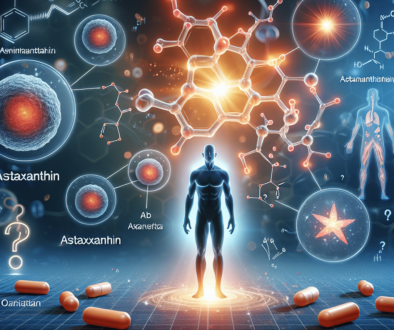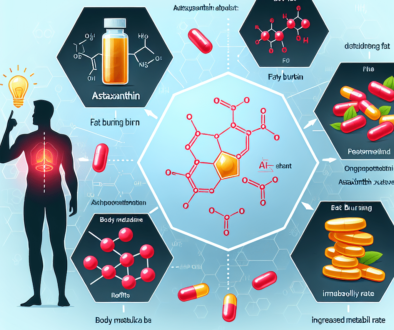Is astaxanthin a powerful anti-inflammatory?
-
Table of Contents
- Astaxanthin: A Potent Anti-Inflammatory Agent?
- Understanding Inflammation and Oxidative Stress
- The Anti-Inflammatory Properties of Astaxanthin
- Scientific Evidence Supporting Astaxanthin’s Anti-Inflammatory Effects
- Case Studies and Anecdotal Evidence
- Recommended Dosage and Safety
- Conclusion: Astaxanthin’s Role in Fighting Inflammation
- Enhance Your Health with ETprotein’s Protein Products
Astaxanthin: A Potent Anti-Inflammatory Agent?

In the quest for natural health solutions, astaxanthin has emerged as a compound of interest due to its potential anti-inflammatory properties. This vibrant red pigment, belonging to the carotenoid family, is found in certain algae, yeast, salmon, trout, krill, shrimp, and other seafood. It is responsible for the pinkish hue in flamingos and salmon. But beyond its color, astaxanthin has been the subject of numerous studies investigating its health benefits, particularly its role in inflammation and oxidative stress.
Understanding Inflammation and Oxidative Stress
Before delving into the specifics of astaxanthin, it’s important to understand the processes of inflammation and oxidative stress. Inflammation is the body’s natural response to injury or infection, a protective attempt by the organism to remove harmful stimuli and initiate the healing process. However, chronic inflammation can lead to various diseases, including arthritis, diabetes, heart disease, and cancer.
Oxidative stress occurs when there is an imbalance between free radicals and antioxidants in the body. Free radicals are oxygen-containing molecules with an uneven number of electrons, which allows them to easily react with other molecules. These reactions can cause large chain chemical reactions in the body because they react so readily with other molecules. Oxidative stress can damage cells, proteins, and DNA, contributing to aging and a host of diseases.
The Anti-Inflammatory Properties of Astaxanthin
Astaxanthin has gained attention for its potent antioxidant properties, which are said to be significantly stronger than those of other well-known antioxidants like vitamin C, vitamin E, and beta-carotene. Here’s how astaxanthin may help combat inflammation and oxidative stress:
- Neutralizing Free Radicals: Astaxanthin can quench free radicals and reactive oxygen species (ROS), preventing them from causing cellular damage.
- Inhibiting Inflammatory Pathways: It has been shown to suppress the production of inflammatory cytokines and mediators by inhibiting the NF-kB pathway, a key regulator of the inflammatory response.
- Enhancing Immune Response: Astaxanthin may modulate the immune system, enhancing the body’s natural defense against inflammation.
Scientific Evidence Supporting Astaxanthin’s Anti-Inflammatory Effects
Several studies have investigated the anti-inflammatory effects of astaxanthin. For instance:
- A study published in the journal “Marine Drugs” found that astaxanthin reduced inflammation in mice with colitis, suggesting potential benefits for inflammatory bowel diseases.
- Research in the “Journal of the American College of Nutrition” showed that astaxanthin decreased oxidative stress and inflammation in overweight and obese individuals, which are risk factors for cardiovascular diseases.
- A clinical trial indicated that astaxanthin supplementation improved the immune response and reduced DNA damage in healthy elderly subjects, as reported in the “Nutrition Research” journal.
These studies, among others, provide promising evidence that astaxanthin could be a powerful anti-inflammatory agent. However, more research, especially in humans, is needed to fully understand its effects and therapeutic potential.
Case Studies and Anecdotal Evidence
In addition to scientific research, there are numerous anecdotal reports and case studies of individuals experiencing reduced symptoms of inflammation-related conditions after taking astaxanthin supplements. For example, some people with joint pain and arthritis have reported decreased pain and increased mobility. While these accounts are encouraging, they do not replace the need for rigorous clinical trials.
Recommended Dosage and Safety
The recommended dosage of astaxanthin varies depending on the individual and the condition being addressed. Most studies have used doses ranging from 4 to 12 mg per day. Astaxanthin is generally considered safe, with no significant side effects reported at these levels. However, as with any supplement, it is essential to consult with a healthcare provider before starting any new regimen.
Conclusion: Astaxanthin’s Role in Fighting Inflammation
In conclusion, astaxanthin appears to be a potent anti-inflammatory agent with the potential to mitigate the harmful effects of chronic inflammation and oxidative stress. While the current body of research is promising, further studies are necessary to establish definitive therapeutic guidelines and to fully understand the long-term implications of astaxanthin supplementation.
The key takeaways from this article are:
- Astaxanthin is a powerful antioxidant that may help reduce inflammation and oxidative stress.
- Scientific studies and anecdotal evidence suggest that astaxanthin has anti-inflammatory properties.
- More research is needed to confirm these benefits and to determine optimal dosages.
- Always consult with a healthcare provider before starting any new supplement regimen.
Enhance Your Health with ETprotein’s Protein Products
If you’re looking to complement your health regimen with high-quality protein products, consider ETprotein’s offerings. Their extensive range of organic bulk vegan proteins, including rice protein, pea protein, and various seed proteins, provide excellent nutrition and support for your overall well-being. Additionally, their L-(+)-Ergothioneine products offer further antioxidant benefits, contributing to your anti-inflammatory goals.
About ETprotein:
ETprotein, a reputable protein and L-(+)-Ergothioneine (EGT) Chinese factory manufacturer and supplier, is renowned for producing, stocking, exporting, and delivering the highest quality organic bulk vegan proteins and L-(+)-Ergothioneine. They include Organic rice protein, clear rice protein, pea protein, clear pea protein, watermelon seed protein, pumpkin seed protein, sunflower seed protein, mung bean protein, peanut protein, and L-(+)-Ergothioneine EGT Pharmaceutical grade, L-(+)-Ergothioneine EGT food grade, L-(+)-Ergothioneine EGT cosmetic grade, L-(+)-Ergothioneine EGT reference grade and L-(+)-Ergothioneine EGT standard. Their offerings, characterized by a neutral taste, non-GMO, allergen-free attributes, with L-(+)-Ergothioneine purity over 98%, 99%, cater to a diverse range of industries. They serve nutraceutical, pharmaceutical, cosmeceutical, veterinary, as well as food and beverage finished product distributors, traders, and manufacturers across Europe, USA, Canada, Australia, Thailand, Japan, Korea, Brazil, and Chile, among others.
ETprotein specialization includes exporting and delivering tailor-made protein powder and finished nutritional supplements. Their extensive product range covers sectors like Food and Beverage, Sports Nutrition, Weight Management, Dietary Supplements, Health and Wellness Products, and Infant Formula, ensuring comprehensive solutions to meet all your protein needs.
As a trusted company by leading global food and beverage brands and Fortune 500 companies, ETprotein reinforces China’s reputation in the global arena. For more information or to sample their products, please contact them and email sales(at)ETprotein.com today.











